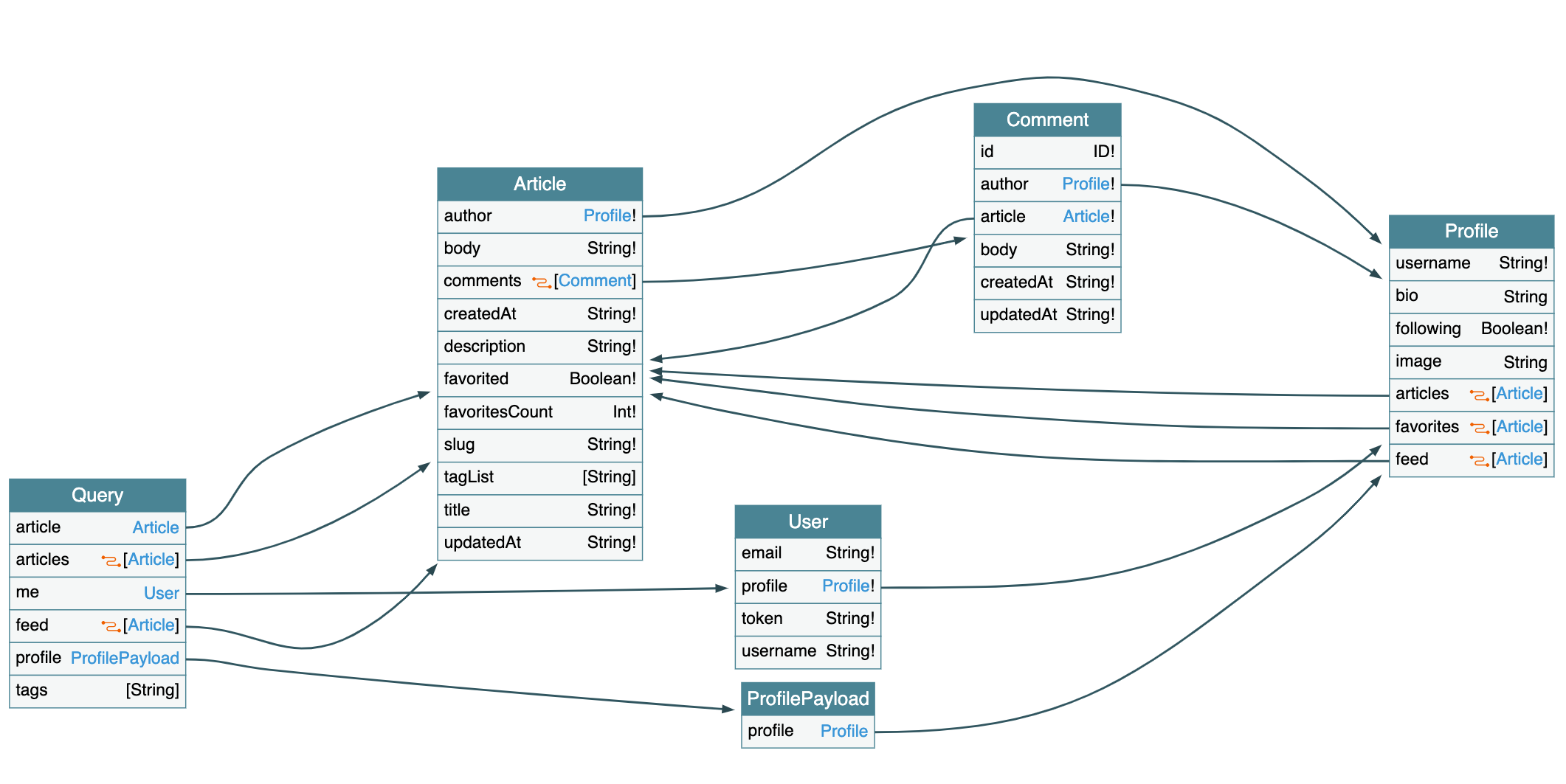Spring boot + MyBatis codebase containing real world examples (CRUD, auth, advanced patterns, etc) that adheres to the RealWorld spec and API
This codebase was created to demonstrate a fully fledged fullstack application built with Spring boot + Mybatis including CRUD operations, authentication, routing, pagination, and more.
For more information on how to this works with other frontends/backends, head over to the RealWorld repo.
Following some DDD principle. The REST or GraphQL is just kind of adapter. And the domain layer will be consistent all the time. So this repository implement GraphQL and REST at the same time.
The GraphQL schema is https://github.com/gothinkster/spring-boot-realworld-example-app/blob/master/src/main/resources/schema/schema.graphqls and the visualization looks like below.
And this implementation is using dgs-framework which is a quite new java graphql server framework.
The application uses Spring boot (Web, Mybatis).
- Use the idea of Domain Driven Design to separate the business term and infrastruture term.
- Use MyBatis to implement the Data Mapper pattern for persistence.
- Use CQRS pattern to separate the read model and write model.
And the code organize as this:
apiis the web layer to implement by Spring MVCcoreis the business model including entities and servicesapplicationis the high level services for query with the data transfer objectsinfrastructurecontains all the implementation classes as the technique details
Integration with Spring Security and add other filter for jwt token process.
The secret key is stored in application.properties.
It uses a H2 in memory database sqlite database (for easy local test without lost test data after every restart), can be changed easily in the application.properties for any other database.
You need Java 8 installed.
./gradlew bootRun
To test that it works, open a browser tab at http://localhost:8080/tags . Alternatively, you can run
curl http://localhost:8080/tags
Try it out with Docker
You need Docker installed.
docker-compose up -d
The entry point address of the backend API is at http://localhost:8080, not http://localhost:8080/api as some of the frontend documentation suggests.
The repository contains a lot of test cases to cover both api test and repository test.
./gradlew test
Follow the instruction from google-java-format-git-pre-commit-hook to use a pre-commit hook to make the code format style stable from different contributors.
Please fork and PR to improve the code.

